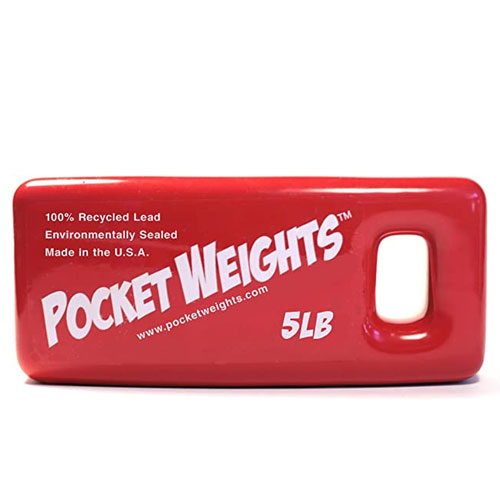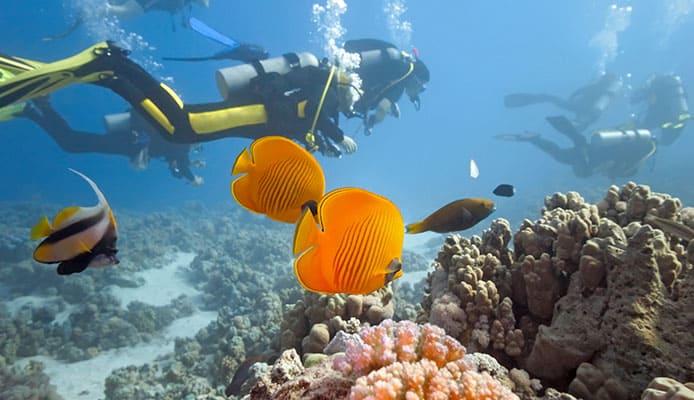
Dive weights are an essential piece of equipment for any diver. They’ll help you obtain neutral buoyancy needed for scuba diving after diving below the water level. The amount of extra weight needed to descend below the surface depends on various factors and differs from one diver to another.
Let’s take a look at the best diving weights to help you select the perfect belt that will improve your dives.
Here’s our list of the best diving weights we’ve reviewed and only handpicked the weights that suit your needs.
OUR TOP PICK
XS Scuba
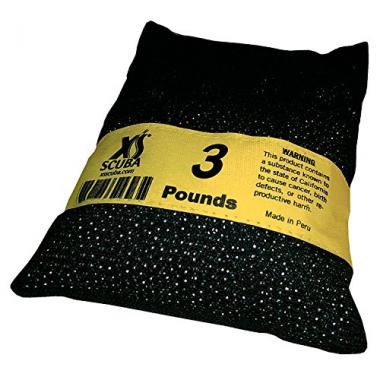
- Stand Out Features - Why We Love It
- Hardened with Antimony
- No Scrap Lead Used
Weight: 3 pounds
Colour: Yellow
EDITORS CHOICE
Sea Pearls
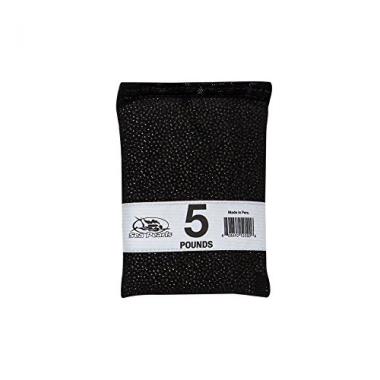
- Stand Out Features - Why We Love It
- Quick draining and drying design
- Eliminates bruising of hips
Weight: 1 pound
Colour: Black
BEST VALUE
Sea Pearls Vinyl Coated Lace Thru
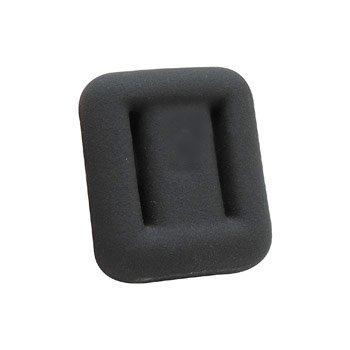
- Stand Out Features - Why We Love It
- Fade-resistant colours
- Matte finish resists scratching
Weight: 1 pound
Colour: Black
Sea Pearls Uncoated Lace Thru Style Hard
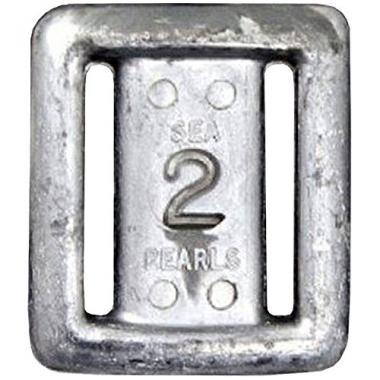
- Stand Out Features - Why We Love It
- Rounded and contoured for comfort
- Die cast on location at Sea Pearls
Weight: 1 pound
Colour: Grey
Pocket Weights BCD Scuba Weight (Singles)
- Stand Out Features - Why We Love It
- Perfect for adjusting trim
- Easy attachment
Weight: 5 pounds
Colour: Red
Cramer Decker Scuba Diving Shot Lead Soft Weight (Pairs)
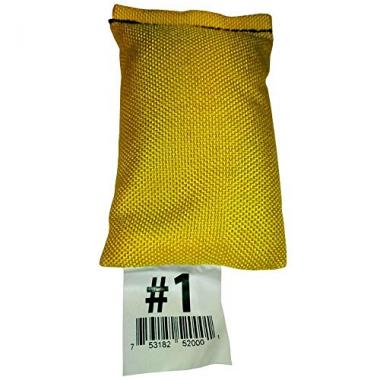
- Stand Out Features - Why We Love It
- Coloured labels
- Double needle stitching
Weight: 5 pounds
Colour: Yellow
Pocket Weights BCD
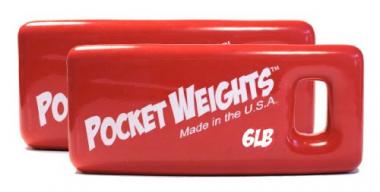
- Stand Out Features - Why We Love It
- Perfect for adjusting trim
- Easy attachment
Weight: 5 pounds
Colour: Red
Sea Pearls Pass Thru Bullet Style
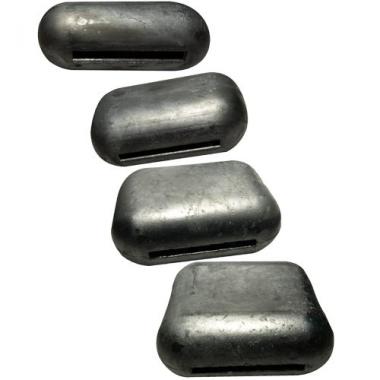
- Stand Out Features - Why We Love It
- Accurate and true weights
- Rounded and contoured for comfort
Weight: 2 pounds
Colour: Uncoared
How To Choose A Diving Weight – Buying Guide
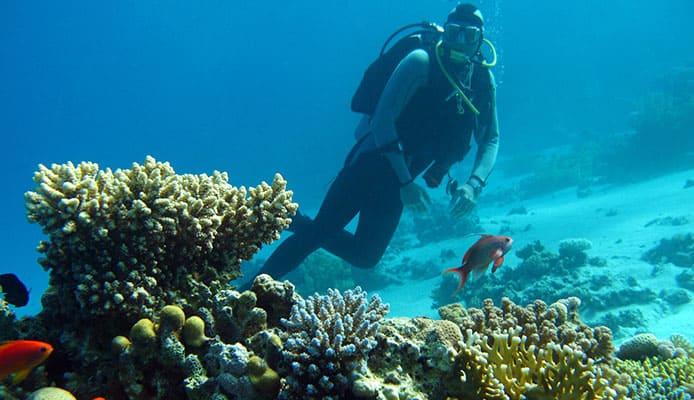
Diving weights will help you get below the level of water required for scuba diving to obtain neutral buoyancy. The amount of weight required to enable you descend below the surface will depend on the following factors:
Type
The type of weight belt you choose will depend on your personal preference. Below are some of the common types of weight belts:
Lead Block Belts
These are the most inexpensive and common type of weight-belt for scuba use. They’re uncomfortable because they dig into the diver’s hips. They consist 2-3 inch nylon belt with a quick release buckle onto which lead weights may be coated or uncoated of varying weights that range from 2-15 pounds.
Integrated Weights
These are systems built into your BCD to eliminate the need to carry a separate belt. They’re more comfortable than weight belts but make your scuba BCD unit heavier making it difficult to move around before and after the dive.
Pocket Belts
It’s easy to add and subtract weights from this weight belt in order to adjust buoyancy after every dive. They’re also comfortable as the weights don’t dig into the diver’s hips. They comprise of a regular nylon belt with pockets running along the length of the belt.
Use
Hard weights are used by dive instructors to anchor equipment down. Also, divers completing marine or coral surveys weigh underwater survey equipment when swells are changeable.
Salt or Fresh Water
Fresh water has a low density while the density of salt water is high making you more buoyant. To reach neutral buoyancy in salt water, you’ll need more weights.
Wetsuit Thickness
You’ll need more weights if your wetsuit is thicker because the neoprene material from which a wetsuit is made contains millions of air bubbles that make it buoyant.
Style
There are many types of weights; ones that are integrated into your scuba BCD and those that rest on a weight belt around your waist.
Hard or Soft
There are both hard and soft weights; hard weights are uncomfortable because they don’t conform to the body causing them to dig in and easily gets damaged when dropped on a hard surface.
Soft weights are flexible and conform to your body shape. Unlike hard weights, they aren’t damaged when dropped.
You might also like: Perfect Travel BCDs
Steel or Aluminium Cylinders
All cylinders start negatively buoyant. When Steel cylinders are used, they become neutrally buoyant while aluminium cylinders become positively buoyant.
FAQs
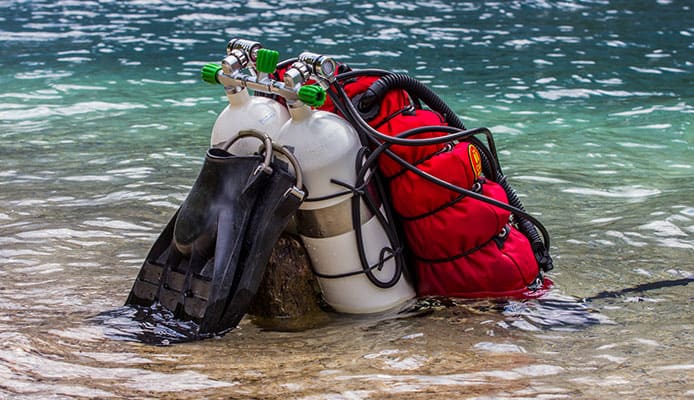
Q: Why Use Scuba Weights?
Diving weights are used when diving underwater to balance buoyancy. This allows you to offset the buoyancy of your scuba tank, the gasses in your body and your wetsuit. They provide effective positioning while in the water and help you stay in the correct position.
Q: What Are the Benefits of Using Scuba Weights?
Divers use scuba diving weights and belts to help in controlled emergency swimming ascent to stay submerged. A scuba diving belt is used for recreational diving and has a quick release buckle that drops the weight urgently during an emergency.
You’ll be able to fine tune your scuba trim weights, the distribution of your weight from head to toe, side to side and front to back when using diving weights and belts. This will help you maintain a horizontal swimming position without rolling to one side or your feet rising/sinking and keep your scuba fins off the reef.
A scuba divers weight belt will also conform to your body shape and enable you add or remove weight easily.
Globo Surf Overview
Different underwater environments can affect your buoyancy. Thus, being knowledgeable about how and when to make the necessary adjustments is a crucial skill you need to cultivate. Perform some test runs in a above ground pool using different types of weights to help you find out what suits your needs best.



